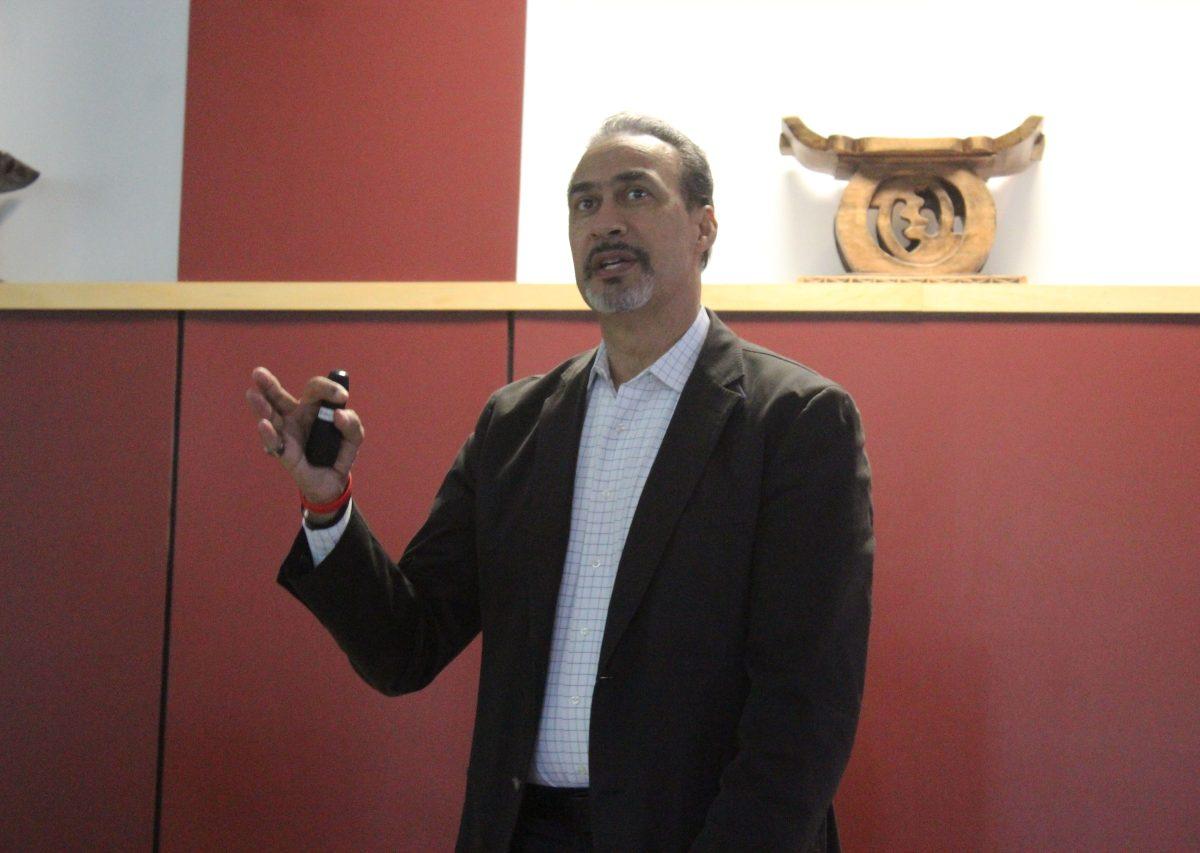*Editor’s Note: The photo has been updated to be more recent
Phil Freelon, prominent architect, graduate of the NC State College of Design and adjunct professor at NC State, died July 9 at the age of 66, after being diagnosed with amyotrophic lateral sclerosis (ALS) in 2016.
Professionally, Freelon distinguished himself through his commitment to enhancing the community by designing beautiful yet functional buildings for everyone to enjoy. Teri Canada, a long-term employee of the Freelon Group from 2006 to 2015 and current co-founder of EVOKE architecture, expressed how important lifting up the community was when working for Freelon and the Freelon Group.
“He never would design prisons, because those institutions negatively impact the African American community; he always wanted to design and build buildings that uplifted everyone,” Canada said. “Being able to impact different communities that are usually underserved and really celebrate that history and culture was amazing. It was a special place to work.”
Freelon’s passion for advocacy for the African American community and for those who worked for him is something that drove the Freelon Group’s success, according to Kenneth Lucker, former partner to Freelon and current design principal and design leader of Perkins and Will architecture firm. Lucker described his personal mentorship from Freelon as one of great importance to him.
“He really championed individuals and their career, a very good advocate,” Lucker said. “He taught me to be a mentor in many ways.”
As an advocate for African American culture, Freelon left his mark in a multitude of areas. Most notably, he designed the National Museum of African American History and Culture, located in Washington, D.C., according to Billy Askey, former employee and current co-founder of EVOKE architecture.
“If I had to point to a single thing, I think it’s pretty remarkable that the lead architect for the National African American Smithsonian Museum was Phil Freelon from North Carolina, a graduate of North Carolina State, it’s something that everyone across the country knows,” Askey said when asked to reflect on Freelon’s greatest professional accomplishment. “It’s sort of the pinnacle of his career.”
However, Freelon’s legacy took a different form for all the people who knew him. David Hill, head of the school of architecture at NC State, spoke about the legacy Freelon left behind for NC State’s architecture program.
“Really, I think the legacy that he has is one of changing the profession, shifting the direction of the profession to being one that is more inclusive, one that values minority professionalism and participation.” Hill said. “Even though he hasn’t taught at NC State for quite a number of years, students come to NC State because they knew about him and his legacy and I think as a role model.”
In addition to teaching and mentoring NC State students, Freelon is also responsible for designing Partners III on Centennial Campus and the Gregg Museum of Art & Design renovation on Hillsborough Street.
EVOKE is another way in which Freelon’s legacy lives on. Teri Canada, Billy Askey and Edwin Harris, three former employees of the Freeman group, co-founded the EVOKE architecture firm.
“EVOKE was basically birthed out of the Freelon Group and our architecture; everything we learned at the Freelon Group kind of spilled over into how we do things,” Canada said. “In a way, we are like his legacy, I guess you could say.”
Askey said Freelon’s passions are what drove his success. His drive to leave the communities he worked on better than he found them as a means to improve the livelihood of individuals in those communities is what distinguished Freelon professionally and personally from the rest.
“The designs we created with Phil were always about the communities we were working for,” Askey said. “By allowing the design to reflect and grow out of the community that it stands to serve, it resonates and means more to the people that will use it long after we have done our job.”








